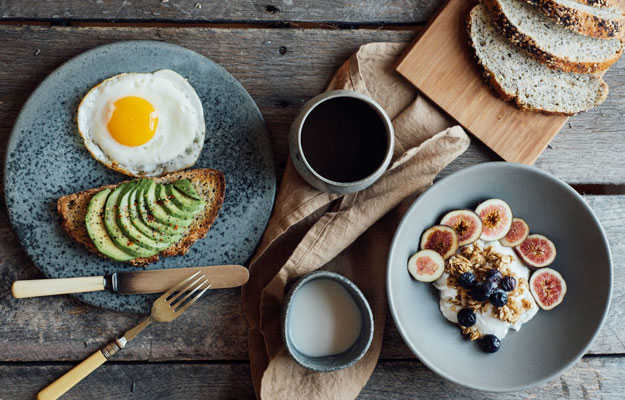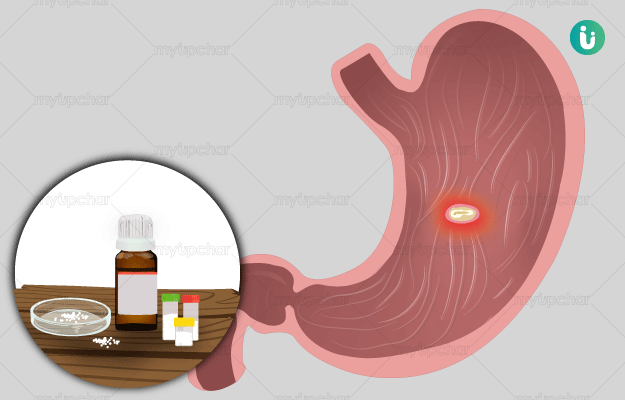Most stomach ulcers are caused by the bacteria helicobacter pylori (H. pylori). Another common cause is the use of nonsteroidal anti-inflammatory drugs (NSAIDs), including acetylsalicylic acid (ASA). Treatment of ulcers focuses on fighting the infection caused by H. pylori with antibiotics and decreasing the amount of acid produced in the stomach to help decrease the pain and promote healing. The common symptoms of an ulcer are dull stomach pain, weight loss, and not wanting to eat because of nausea, vomiting, bloating, burping, acid reflux, heartburn, anemia, etc.
No food has been shown to cause peptic ulcers but some may make your symptoms worse or make it more difficult for your ulcer to heal. In this article, we will discuss foods you should have and those you should avoid when you have stomach ulcers. We've also given a diet plan for peptic ulcers that contains Indian foods and incorporates all the suggestions given in this article.
(Read more: Homeopathic treatment of stomach ulcer)
Are you also troubled by obesity and are not able to lose weight even after a lot of efforts, then start using myUpchar Ayurveda Medarodh Weight Control Tablet today and control your weight.












